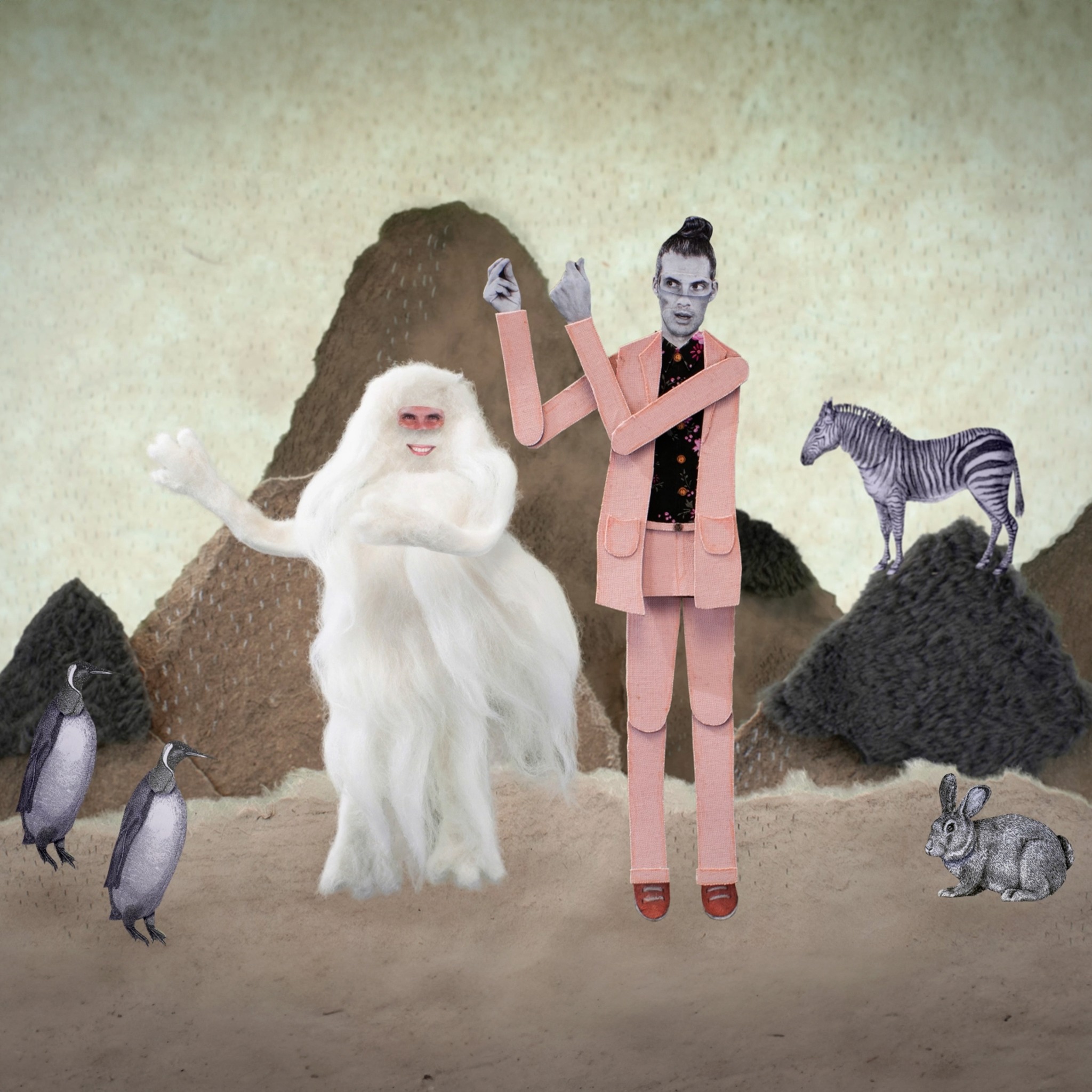Algeria, with its rich landscapes and burning revolutions, remains a territory unknown to most people outside this vast country making five times the France. Through its history and its diversified panorama, the country of the fennec has a rich heritage hidden from all. As if this cultural treasure was placed out of sight. This lack of awareness is partly due to the occupation and the trauma of war. A withdrawal into oneself took place to heal this evil suffered. We propose through this article 5 things to discover about Algeria. A preface of what this Arab-Berber cradle has in store.
Frantz Fanon, Hero of Humanity
Ibrahim Frantz Fanon, born Frantz Fanon on July 20, 1925 in Fort-de-France (Martinique) and died on December 6, 1961 in Bethesda in a military hospital in the suburbs of Washington in the United States. He is buried on the Algerian-Tunisian border next to his "brothers". He is a French psychiatrist and essayist strongly involved in the struggle for the independence of Algeria and in an international struggle setting up solidarity between oppressed "brothers". 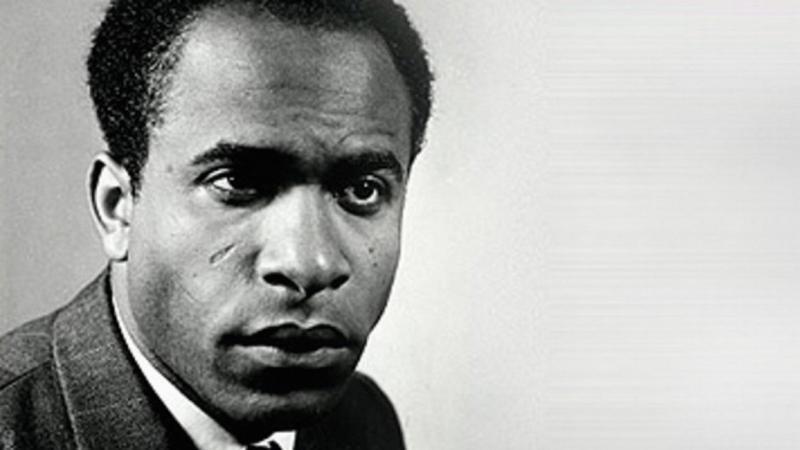 Throughout his life, he sought to analyze the psychological consequences of colonization on both the colonist and the colonized. In his best-known books, he analyzes the process of decolonization from sociological, philosophical and psychiatric perspectives. Fanon wondered for a long time why one or two "liberating" men were honored and not slaves themselves. By becoming a psychiatrist, he wanted to revolutionize his discipline. He chose Algeria above all to treat the colonized, those who were denied the right to be full-fledged humans. He then wrote a book entitled "Black skin, white masks", a clinical study to get out of the impact of race. A way to tell blacks to detach themselves from white and tell white that he is not superior to the one who is different. Thanks to the testimonies of his torturer patients and tortured people, he will make a harsh observation. All the violence that permeates bodies and minds sums up the madness of the colonial enterprise. For him, Pan-Africanism was the solution to liberate all peoples oppressed by colonialism. Pacifism was not an effective solution, because evil was deeply rooted. Frantz Fanon became a thought leader for many intellectuals especially in non-Western countries. In tribute to his work in psychiatry and his support for the Algerian cause, three hospitals in Algeria, the psychiatric hospital in Blida where he worked, one of the hospitals in Béjaïa and a hospital in Annaba, bear his name.
Throughout his life, he sought to analyze the psychological consequences of colonization on both the colonist and the colonized. In his best-known books, he analyzes the process of decolonization from sociological, philosophical and psychiatric perspectives. Fanon wondered for a long time why one or two "liberating" men were honored and not slaves themselves. By becoming a psychiatrist, he wanted to revolutionize his discipline. He chose Algeria above all to treat the colonized, those who were denied the right to be full-fledged humans. He then wrote a book entitled "Black skin, white masks", a clinical study to get out of the impact of race. A way to tell blacks to detach themselves from white and tell white that he is not superior to the one who is different. Thanks to the testimonies of his torturer patients and tortured people, he will make a harsh observation. All the violence that permeates bodies and minds sums up the madness of the colonial enterprise. For him, Pan-Africanism was the solution to liberate all peoples oppressed by colonialism. Pacifism was not an effective solution, because evil was deeply rooted. Frantz Fanon became a thought leader for many intellectuals especially in non-Western countries. In tribute to his work in psychiatry and his support for the Algerian cause, three hospitals in Algeria, the psychiatric hospital in Blida where he worked, one of the hospitals in Béjaïa and a hospital in Annaba, bear his name.
The Hoggar, the "noble" massif
The Hoggar massif (meaning "The Noble") is located in the south of Algeria, close to the border with Niger and the Tropic of Cancer, which crosses this superb desert expanse. Located on the land of the Kel Ahaggar Tuaregs, this landscape is certainly one of the most breathtaking between deserts, steep mountains, vertiginous plateaus and welcoming oases that allow travelers to rest. A place out of the world and out of time, which perfectly reflects all the hidden riches of Algeria. 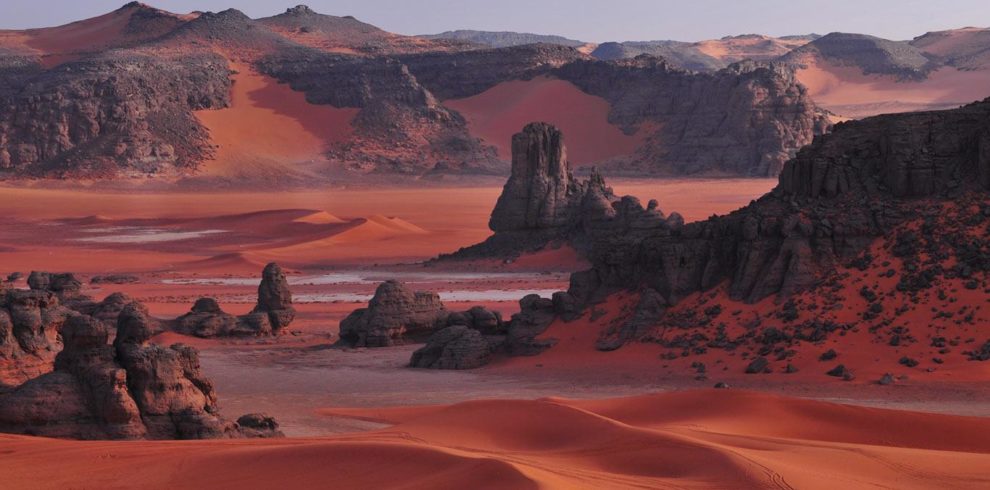 4 places in the region are unmissable. The first is the Atakor plateau, which rises to more than 2000 meters above sea level and is home to countless volcanoes that border on 3000 meters. It is a vertiginous landscape, absolutely beautiful, its flows of volcanic rocks, its huge calderas and its lunar atmosphere make it one of the most beautiful places in the Sahara. The second place is Mount Tahat, the highest point of the Atakor. Of volcanic origin, it is one of the highest mountains in all of Algeria, and certainly one of the most beautiful.
4 places in the region are unmissable. The first is the Atakor plateau, which rises to more than 2000 meters above sea level and is home to countless volcanoes that border on 3000 meters. It is a vertiginous landscape, absolutely beautiful, its flows of volcanic rocks, its huge calderas and its lunar atmosphere make it one of the most beautiful places in the Sahara. The second place is Mount Tahat, the highest point of the Atakor. Of volcanic origin, it is one of the highest mountains in all of Algeria, and certainly one of the most beautiful. 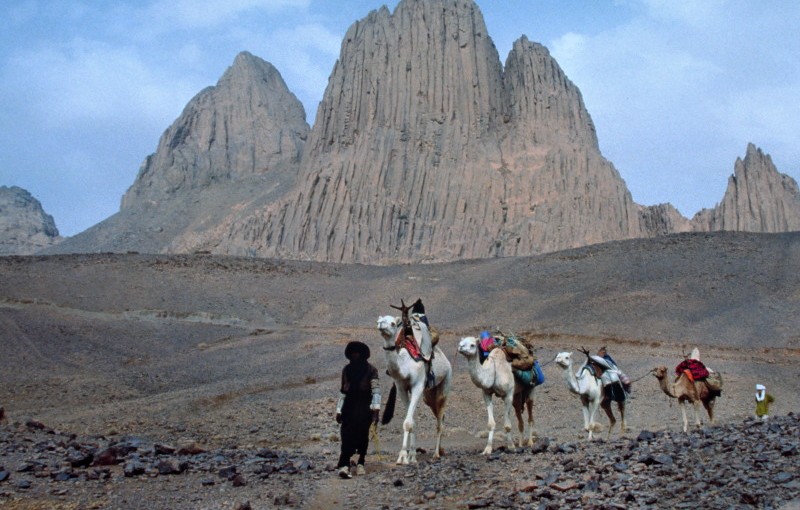 Tamanrasset is the main city of the Hoggar, and certainly one of the most touristic. This activity, which allows the region to prosper, was interrupted in the 1990s by intense terrorist activity there. Now a safe city again, it is a young, very welcoming, and truly unique place, with its red houses and very arid climate. A place lost in the depths of the Sahara with a thousand-year-old cultural richness. The last place is the tomb of Tin Hinan. Located in the oasis of Abalessa, this tomb, attributed to the Tuareg queen Tin Hinan, can be visited. If the mummy that was found there was transported to the Bardo Museum in Algiers, the burial is open to tourists wishing to know more deeply the culture of the Tuaregs Kel Ahaggar. Many mysteries surround this place. Indeed, the reason for the construction of such an object is not known but archaeologists are certain that it is not a woman! Another mystical legend to solve in this vast landscape.
Tamanrasset is the main city of the Hoggar, and certainly one of the most touristic. This activity, which allows the region to prosper, was interrupted in the 1990s by intense terrorist activity there. Now a safe city again, it is a young, very welcoming, and truly unique place, with its red houses and very arid climate. A place lost in the depths of the Sahara with a thousand-year-old cultural richness. The last place is the tomb of Tin Hinan. Located in the oasis of Abalessa, this tomb, attributed to the Tuareg queen Tin Hinan, can be visited. If the mummy that was found there was transported to the Bardo Museum in Algiers, the burial is open to tourists wishing to know more deeply the culture of the Tuaregs Kel Ahaggar. Many mysteries surround this place. Indeed, the reason for the construction of such an object is not known but archaeologists are certain that it is not a woman! Another mystical legend to solve in this vast landscape.
Jugurtha, the ruthless Numidian king?
Jugurtha (Tamazight: Yugarten translating as " He surpassed them "), born c. 160 BC. AD in Cirta present-day Constantine in Algeria and died in 104 BC. in Rome, is a Numidian king. He was an intelligent, strategic, and charismatic military king. Brutal and cynical, Jugurtha massacres the two sons of Micipsa, Jugurtha 's uncle and unites Numidia under his authority. Thanks to his alliances and victories with the Romans, he received the title of "friend of Rome". Following this, he managed to maintain diplomatic and military relations in order to restore the unity of the kingdom. He opposed Roman power for seven years between 111 BC. and 105 BC. AD, during a conflict known to us as the "Jugurtha War ". 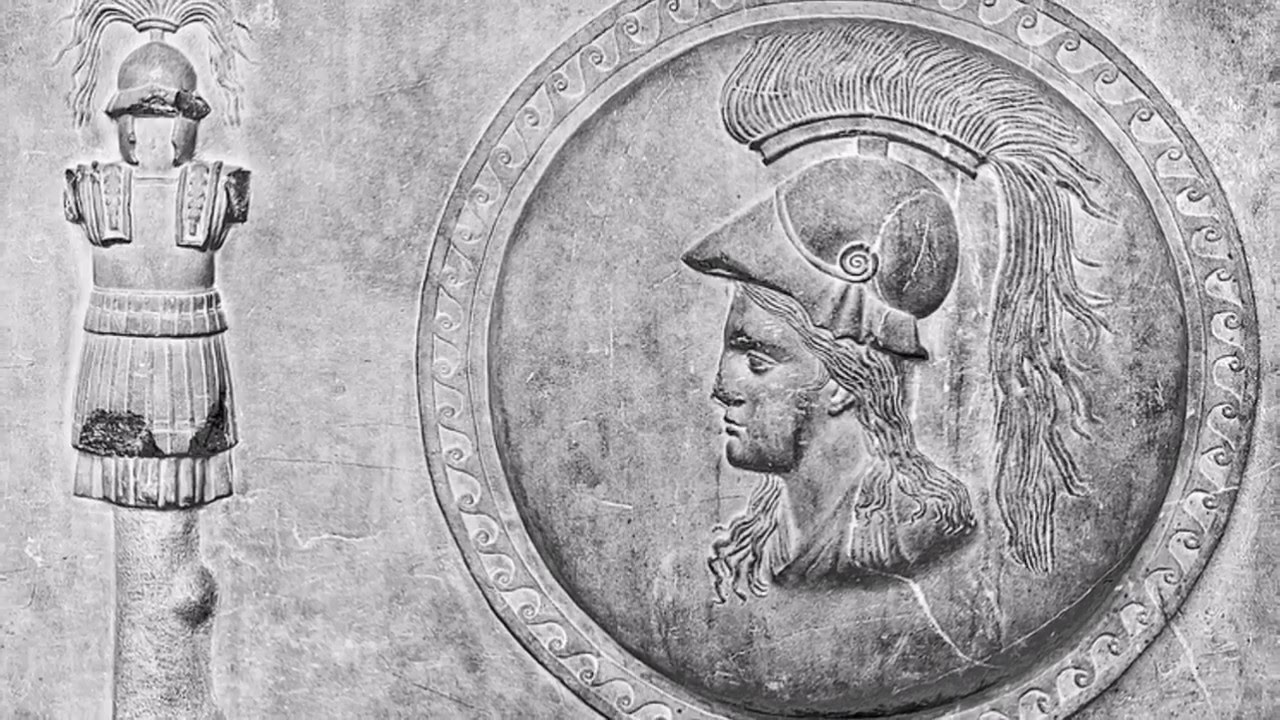 Although Rome's military might crushed Jugurtha, its courage, cunning and brilliant guerrilla strategies constitute a remarkable chapter in the military history of this region. During the French colonization, it is the symbol of the Berber resistance in the face of foreign invasion. His figure is a banner against the French occupier who finds himself facing the Berber resistance who became the Eternal Jugurtha. After the independence of the countries of North Africa, they becamea reference for some leaders who defined themselves as successors of the Berber king. Finally, nowadays, Jugurtha is a pride of all Amazigh peoples.
Although Rome's military might crushed Jugurtha, its courage, cunning and brilliant guerrilla strategies constitute a remarkable chapter in the military history of this region. During the French colonization, it is the symbol of the Berber resistance in the face of foreign invasion. His figure is a banner against the French occupier who finds himself facing the Berber resistance who became the Eternal Jugurtha. After the independence of the countries of North Africa, they becamea reference for some leaders who defined themselves as successors of the Berber king. Finally, nowadays, Jugurtha is a pride of all Amazigh peoples.
Timgad, The Roman city of Africa
When James Bruce made this discovery in 1765, he did not know that beneath his feet were the ruins of the largest Roman settlement built in North Africa: the ancient Thamugadi, now called Timgad. When beauty and history intertwine to give birth to an attractive wonder, we automatically see Timgad. Located in the cables of the eponymous town, the old Roman city is of pure splendour. It has remarkably survived the centuries to reveal its majestic appearance to anyone who sets foot there. The city is indeed one of the oldest and most important settlements in Roman Africa. 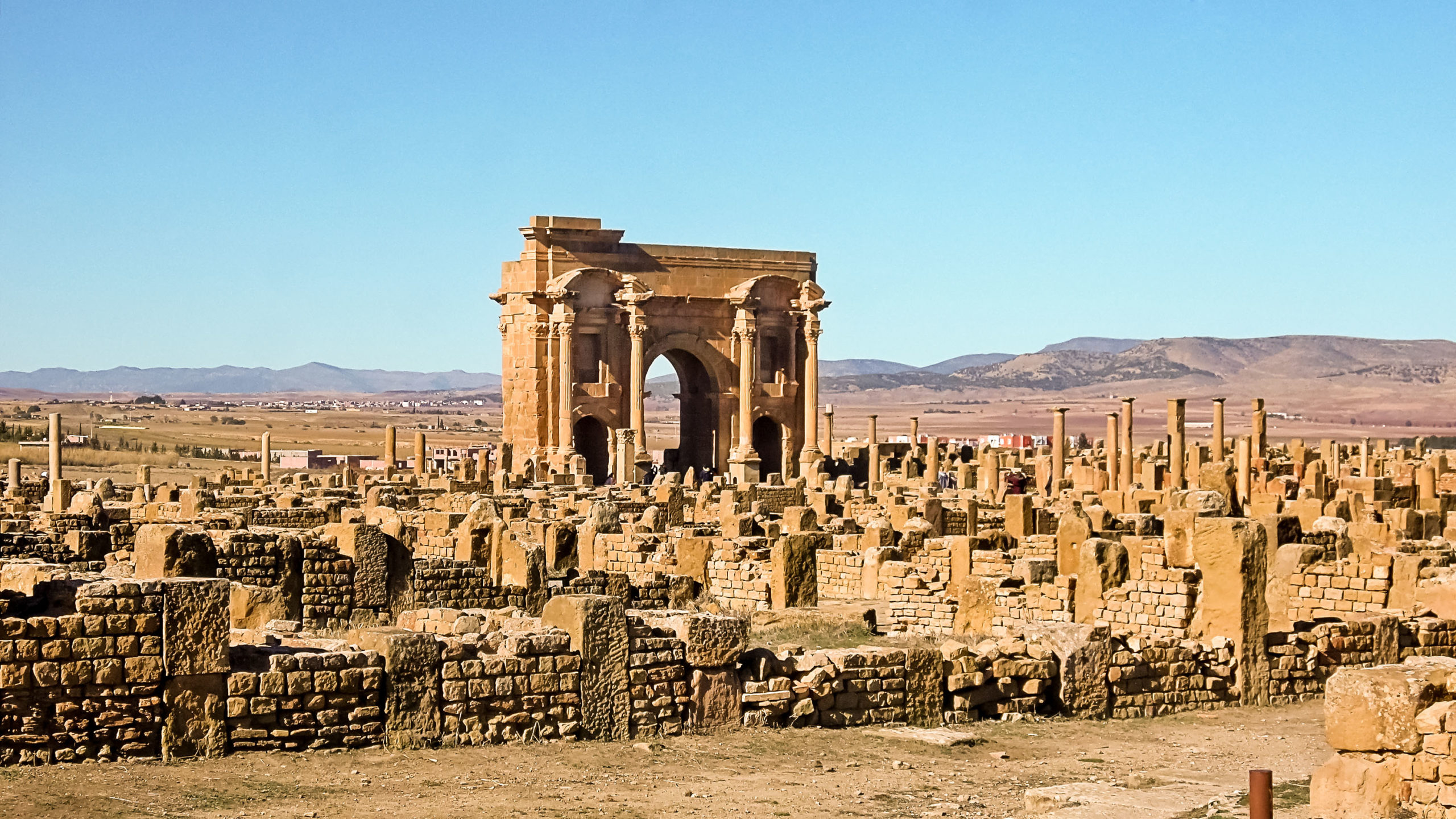
Emir Abdelkader, Founder of the modern Algerian state
Abdelkader ibn Muhieddine also known as Abdelkader El Djezairi or Emir Abdelkader was born on September 6, 1808 in El Guettana, in the Regency of Algiers, and died on May 26, 1883 in Damascus. Then in the Ottoman Empire and in present-day Syria, this man is an emir, Algerian religious and military leader, who leads a struggle against the conquest of Algeria by the France in the mid-nineteenth century. 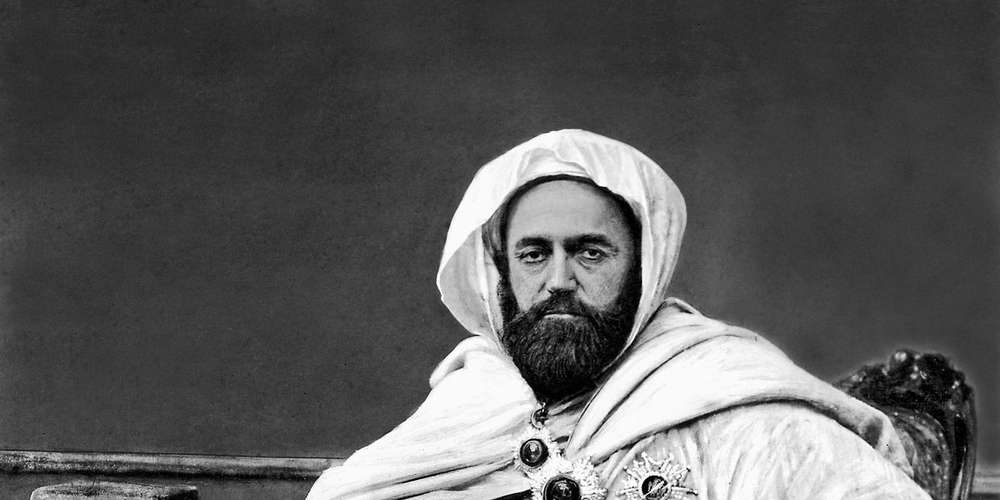 A Muslim scholar and Sufi, he unexpectedly found himself leading a military campaign. He gathered the various chiefs of the tribes of his region to begin the resistance in 1832. At the end of 1838, his reign extended east to Kabylia, south to Biskra and the Moroccan border. His constant respect for what has become known as human rights, especially with regard to his Christian opponents, arouses widespread admiration. He is the founder of the modern Algerian state, recognized as the first to rise up against French forces. It is also as a pious scholar and great diplomat that we can see the image of Abdelkader in his posterity.
A Muslim scholar and Sufi, he unexpectedly found himself leading a military campaign. He gathered the various chiefs of the tribes of his region to begin the resistance in 1832. At the end of 1838, his reign extended east to Kabylia, south to Biskra and the Moroccan border. His constant respect for what has become known as human rights, especially with regard to his Christian opponents, arouses widespread admiration. He is the founder of the modern Algerian state, recognized as the first to rise up against French forces. It is also as a pious scholar and great diplomat that we can see the image of Abdelkader in his posterity.






































